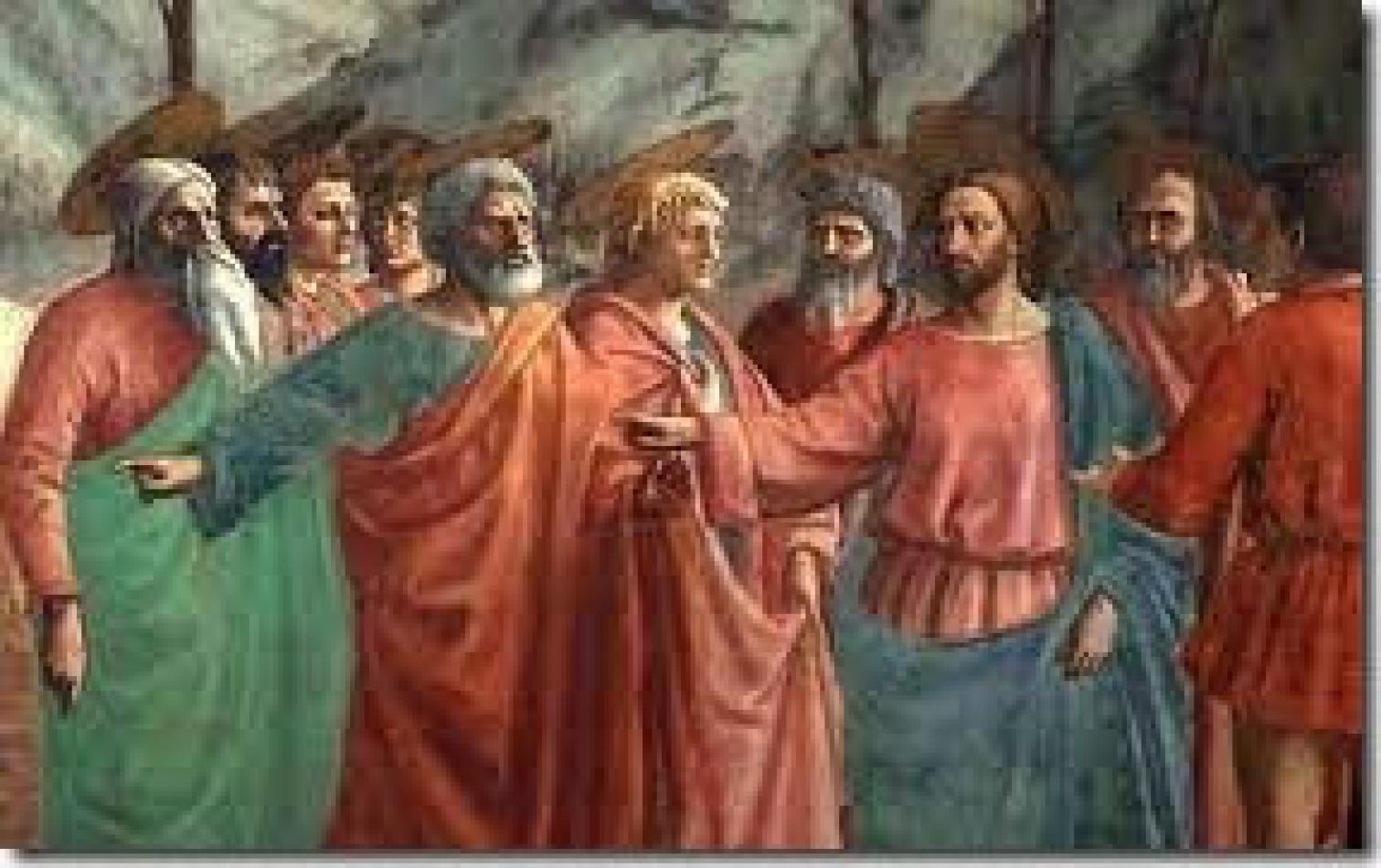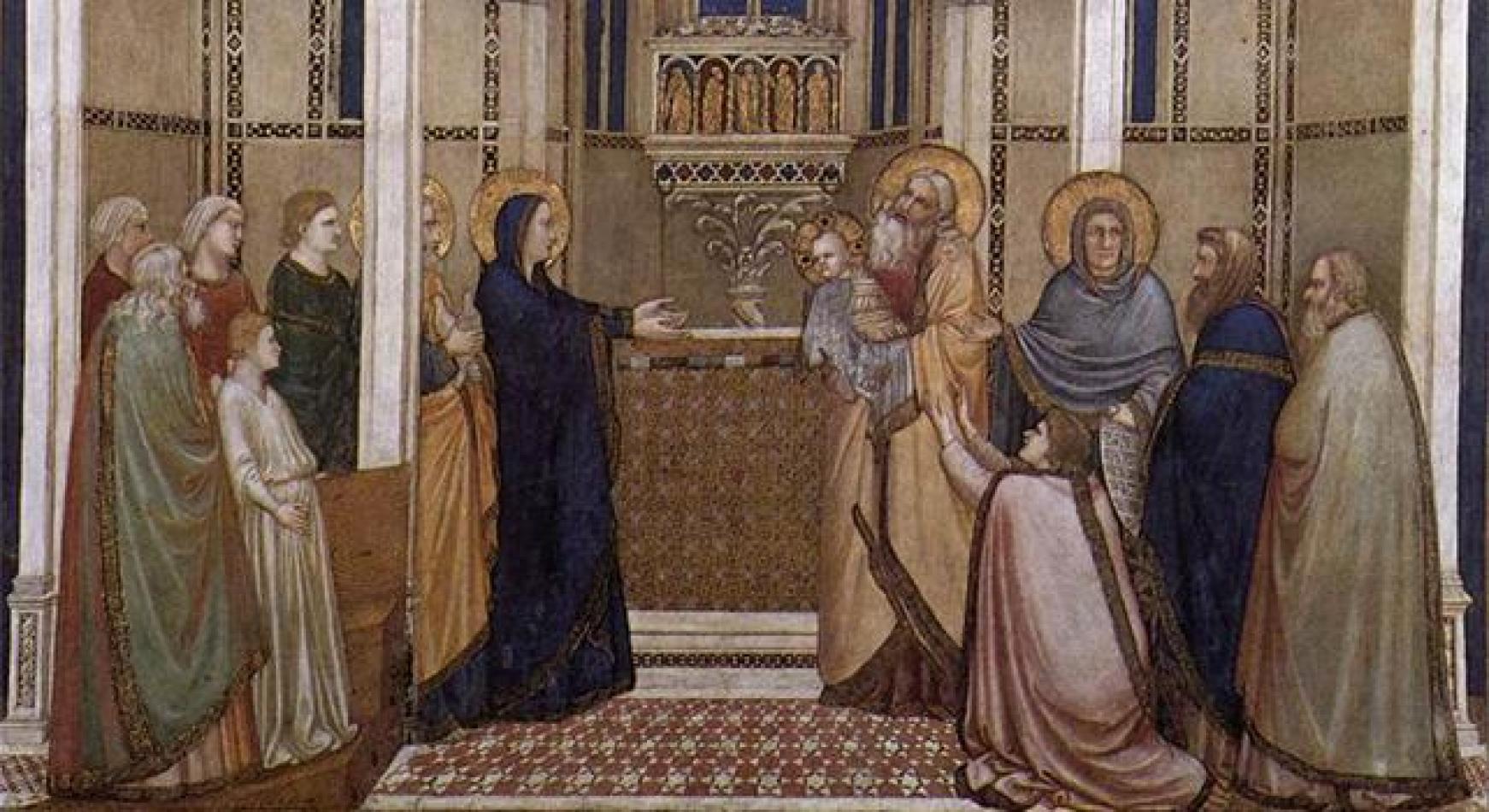Daniel Comboni
Comboni Missionaries
Institutional area
Other links
Newsletter
The dozens or so verses of today’s Gospel offer a global picture of the mission of Jesus and of his disciples: we find here all the elements of the mission of the Church, according to the contents and the style of Jesus. We get a better picture if we include the preceding verse (Mt 9:35), which presents Jesus as the itinerant missionary: “Jesus made a tour through all the towns and villages, teaching in their synagogues, proclaiming the Good News of the kingdom and curing all kinds of diseases and sickness”. (...)
From Compassion to Mission
Romeo Ballan mccj
The dozens or so verses of today’s Gospel offer a global picture of the mission of Jesus and of his disciples: we find here all the elements of the mission of the Church, according to the contents and the style of Jesus. We get a better picture if we include the preceding verse (Mt 9:35), which presents Jesus as the itinerant missionary: “Jesus made a tour through all the towns and villages, teaching in their synagogues, proclaiming the Good News of the kingdom and curing all kinds of diseases and sickness”. Jesus is the ideal, the most important project of every missionary: to be near the people, itinerant, teacher, preacher, healer, compassionate, leaning forward toward God – whose Kingdom he is announcing – and passionate for the good of all, especially of those who suffer.
Jesus never passes by human suffering without intimately feeling its pain and without finding a remedy, a solution for it. The crowds “were harassed and dejected, like sheep without a shepherd” and He “felt sorry for them” (v. 36). Which is more than just a feeling! The correct translation would be: ‘he felt an overall visceral passion’. In fact, the Greek verb (splanknízomai–esplanknísthe), used twelve times in the Gospel, expresses the deep passion of God and of Christ for humankind. The visceral emotion (splankna) recalls the total emotion of a mother during birth. This word of the Gospel (v. 36), therefore, brings us to the discovery of the maternal face of God. The mission of Christ – and consequently the mission of the Church – sinks its roots in the tenderness and compassion of God for humanity: “by the tender mercy of our God…” (Lc 1:78). Of this merciful and missionary love, the Heart of Christ is the visible sign and effective means, as Pope Benedict XVI teaches us.
The Christian, who looks at the world in the way Jesus did, namely with eyes and heart full of compassion, discovers infinite human situations in need of mission, in need, that is, of being enlightened and healed by the Gospel. So that all may have life to the full (see Jn 10:10). To become aware that, even today, here and in whole world, “the harvest is rich but the labourers are few” (v. 37), is already a good start of mission. Jesus shows us two basic answers to the urgencies of mission: “to pray and to go”. First of all, to pray to the Lord of the harvest for the good quality and the number of the labourers in the harvest (v. 38): to pray to Him, because He is the Lord of the Kingdom. To pray, yes, but also to go: Jesus gathers around himself the first group, the Twelve, he calls them by name (v. 10:2-4), gives them the power to preach, to heal the sick, to chase the devil away and to perform other signs, He sends them (v. 5) two by two (in small community nuclei), for a first testing and training mission, limited in time and space (v. 5): for the present the recipients are the “lost sheep of the House of Israel” (v. 6). After the resurrection and with the power of the Spirit, Jesus will send them permanently to the whole world: “Go, therefore, make disciples of all the nations” (Mt 28:19). From then on mission will always be a going further, beyond the conquered goals, in search of other harvesting fields and of other sheep without a shepherd. Wherever they happen to be! It will be a mission without frontiers! With infinite love!
The missionary message to be proclaimed is that the Kingdom of heaven is already at hand (v. 7); for this we need to be converted and to believe in the Gospel (Mc 1:15: see Gospel Acclamation). The Gospel, nevertheless, is not a document or a code: it is first of all a Person, Jesus Christ, who has freely given his love, salvation and reconciliation (II reading), who died “for us, while we were still sinners” (v. 8). In this way we discover how great is God’s love for his people, how He had shown this already in the Old Testament (I reading), freeing the Israelites from the slavery of Egypt, or rather, carrying them “on eagle’s wings” (v. 4), making them “his very own of all the nations… a consecrated nation” (v. 5-6).
The missionary who has made a personal experience of the greatness and gratuity of Christ’s love cannot but feel called to share it without charge with those who do not yet know Him or love Him. Jesus’ command to freely serve the Gospel, without making use of it, thus becomes a joyous invitation to freely give (v. 8). St. Paul understood this very well when he, making an assessment of his missionary life, simply recalls the words of Christ: “There is more happiness in giving than in receiving!” (Ac 20:35). Always, mission is born and fulfilled in love.
Jesus sends the twelve apostles to proclaim the kingdom of heaven.
Matthew 9:36-10:8
At the sight of the crowds, Jesus’ heart was moved with pity for them
because they were troubled and abandoned,
like sheep without a shepherd.
Then he said to his disciples,
“The harvest is abundant but the laborers are few;
so ask the master of the harvest
to send out laborers for his harvest.”
Then he summoned his twelve disciples
and gave them authority over unclean spirits
to drive them out and to cure every disease and every illness.
The names of the twelve apostles are these:
first, Simon called Peter, and his brother Andrew;
James, the son of Zebedee, and his brother John;
Philip and Bartholomew, Thomas and Matthew the tax collector;
James, the son of Alphaeus, and Thaddeus;
Simon from Cana, and Judas Iscariot who betrayed him.
Jesus sent out these twelve after instructing them thus,
“Do not go into pagan territory or enter a Samaritan town.
Go rather to the lost sheep of the house of Israel.
As you go, make this proclamation: ‘The kingdom of heaven is at hand.’
Cure the sick, raise the dead, cleanse lepers, drive out demons.
Without cost you have received; without cost you are to give.”
A Heart Moved with Compassion
Kathleen Rushton
THE GOSPEL ACCORDING to Matthew unfolds within a framework of “Emmanuel — God-with-us.” In the first chapter Jesus is named as “Emmanuel” when the prophet Isaiah is quoted (Mt 1:23). Three times Jesus highlights this: “Where two or three are gathered in my name, I am there among them” (Mt 18:20); “Truly, I tell you, just as you did it (or did not do it) to one of the least of my brothers and sisters, you did it (or did not do it) to me” (Mt 25:40, 45); and in his very last words: “I am with you always to the end of the age” (Mt 28:30).
Within this “Emmanuel — God-with-us” framework expressions of mercy and compassion are integral to Matthew’s Gospel. The power of the biblical tradition of mercy is in the Beatitude: “Blessed are the merciful for they shall be mercied” (Mt 5:7, usually translated as “will receive mercy”). This is the only time the passive form of the verb “to mercy” (eleein) is used in the Gospels.
John Paul II in his encyclical Rich in Mercy wrote: “The concept of ‘mercy’ in the Old Testament has a long and rich history. We have to refer back to it in order that the mercy revealed by Christ may shine forth more clearly … the people of God of the Old Covenant, had drawn from their age-long history a special experience of the mercy of God. This experience was social and communal, as well as individual and interior.” (DM par 4).
The Israelites believed God was a God of raḥamim (womb-compassion) and of ḥesed (steadfast love). “God is gracious and merciful (raḥum), slow to anger and abounding in steadfast love (ḥesed)” (Ps 145:8).
Mercy is action-orientated. We see this when we link the two words Matthew uses to express the mercy of Jesus with the Hebrew raḥamim and ḥesed.
“I Desire Mercy”
Jesus crosses the sea to Capernaum, his own town. He calls Matthew, a tax collector, to follow him. Then Jesus and his disciples have dinner in Matthew’s house (Mt 9:10-13). The Pharisees question his disciples about his dining with tax collectors and sinners. Jesus responds by directing the Pharisees, respected teachers of the Torah, to learn from Hosea 6:6: “I desire mercy (eleos), not sacrifice.” This Greek word for mercy, which is found many times in Matthew, translates the Hebrew word hesed meaning steadfast love, enduring love, loving kindness.
The Greek “Kyrie eleison” is still used in the Eucharist but more often in the English translation “mercy”.
The Womb-Compassion of Jesus
The story continues with Jesus responding. He heals a woman with haemorrhage, two men who are blind and a demoniac — all were marginalised in society (Mt 9:18-24). He travelled the countryside “proclaiming the good news of the kingdom and curing every disease and sickness” (Mt 9:35).
Then when Jesus saw the crowds “he had compassion for them” (Mt 9:36 NRSV). This is the first time the Greek word for compassion (splagnizomai) is used. It literally means “having a heart moved with compassion”.
This deeply-felt response to suffering evokes the Hebrew word, raḥamim, meaning the womb-compassion of God. It is also related to the Hebrew reḥem, the word for womb, and suggests the love of a mother. This is explicit female imagery for God.
A Triad
Matthew draws us into a triad. First, there is a description of a need: Jesus saw the crowds who “were harassed and helpless, like sheep without a shepherd.”
Second, seeing this need Jesus is described as “having a heart moved with compassion.”
And third, the movement to action because something must be done to address the heartfelt need.
Something Must Be Done
Jesus acts. He turns to his disciples reminding them that “the harvest is plentiful, but the labourers are few.” Then he calls together the twelve and delivers his second mission discourse (Mt 10:1-11:1) which reflects both the time of Jesus and the time of the early Church. While Jesus confines the mission of his disciples to the people of Israel (Mt 10:5-6), the time of the early Church is suggested by the mention of disciples being dragged before governors and giving testimony to the Gentiles (Mt 10:18; cf. 28:19).
All disciples are called to participate with Jesus when something must be done — we are to be like him who sees a need and “having a heart moved with compassion” responds by taking action. Jesus gives the twelve disciples authority to respond to the suffering of the crowd.
This triad form (seeing a need, “having a heart moved with compassion,” and then doing something to address the felt need) is repeated four more times in Matthew — being sick (Mt 14:14); being hungry (Mt 15:32); in huge debt (Mt 18:27); and being blind (Mt 20:34). It is also in Luke — the death of widow’s son (Lk 7:13); the wounded one (Lk 10:30); and the lost son (Lk 15:20).
“Mercy-ing” in the World
Moral theologian James Keenan wrote: “Our entire theological tradition is expressed in terms of mercy, which I define as the willingness to enter into the chaos of others.” And Biblical scholar Veronica Lawson explained: “Mercy is a way of being in the world, a way of seeing and of hearing and a way of responding.”
Pope Francis uses the verbal noun “mercy-ing” to translate the first word of his Latin motto “Miserando atque eligendo”. He said: “The Church is commissioned to announce the mercy of God, the beating heart of the Gospel, which in its own way must penetrate the heart and mind of every person … wherever the Church is present, the mercy of God must be evident. In our parishes, communities, associations and movements, in a word, wherever there are Christians, everyone should find an oasis of mercy.” (Misericordiae Vultus par 12).
The mercy related word “having a heart moved with compassion” which is linked to the womb (reḥem) connects Christians, Jews and Muslims. We all speak of God as mercy-ing. In Arabic, the word Rahm meaning “womb” is related to ar–Raham which is translated as “the merciful”. Zain Ali wrote that ar-Raham is “used in the Qur’an as an attribute, or name of God — that is, God the most merciful.”
If we wish to relieve suffering and eradicate inequalities, we will need to see the needs around us, have our hearts moved with compassion — and then we will need to act. Just as we are “mercied”, so we will need to be mercy-ing to others, so that all experience God-with-us — a mercy-full, compassionate, loving Divine.
https://hail.to/tui-motu-interislands-magazine




